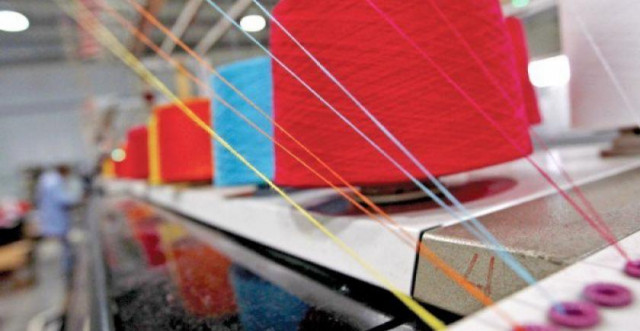Masood Textile to issue Rs5b Sukuk to raise funds
Rupee depreciation has given opportunity to expand operations

Representational image. PHOTO: REUTERS
Masood Textile Mills, a vertically integrated textile manufacturing company, based in Faisalabad, has announced in a notification sent to the Pakistan Stock Exchange (PSX) that it will issue Rs5 billion worth of Sukuk bonds.
It said the company was offering the Islamic bond to raise funds to meet its working capital requirement.
“When a company builds its working capital, it means it is anticipating bigger orders,” said an industry source requesting anonymity.
Companies need working capital to perform their day-to-day functions and by raising the amount from the market, Masood Textile seems to be performing well.
After the rupee depreciation, prices of Pakistani products have become attractive and domestic companies have started getting more orders.
“General situation of the textile sector is better now as order books of the companies are full,” said All Pakistan Textile Mills Association (Aptma) former chairman Yasin Siddique.
In 2018, Masood Textile recorded a turnover of Rs30.84 billion against Rs23.39 billion last year, according to the company’s annual report. The company earned a net profit of Rs1.11 billion with a healthy increase of 25.48% against the previous year.
“Currency devaluation has given an opportunity to the company to regain its product footprint in the global market,” said the company report.
The growth in textile exports is mainly attributed to rupee depreciation, which has helped bring more orders for exporters from the international market.
Knitwear in the textile group showed 11.36% increase in exports, in dollar terms, from July to February, according to the Pakistan Bureau of Statistics.
However, the rupee depreciation has also affected the imported raw material cost because of a rise in prices of basic raw material, according to the Masood Textile report.
Published in The Express Tribune, April 11th, 2019.
Like Business on Facebook, follow @TribuneBiz on Twitter to stay informed and join in the conversation.





1733130350-0/Untitled-design-(76)1733130350-0-208x130.webp)











COMMENTS
Comments are moderated and generally will be posted if they are on-topic and not abusive.
For more information, please see our Comments FAQ